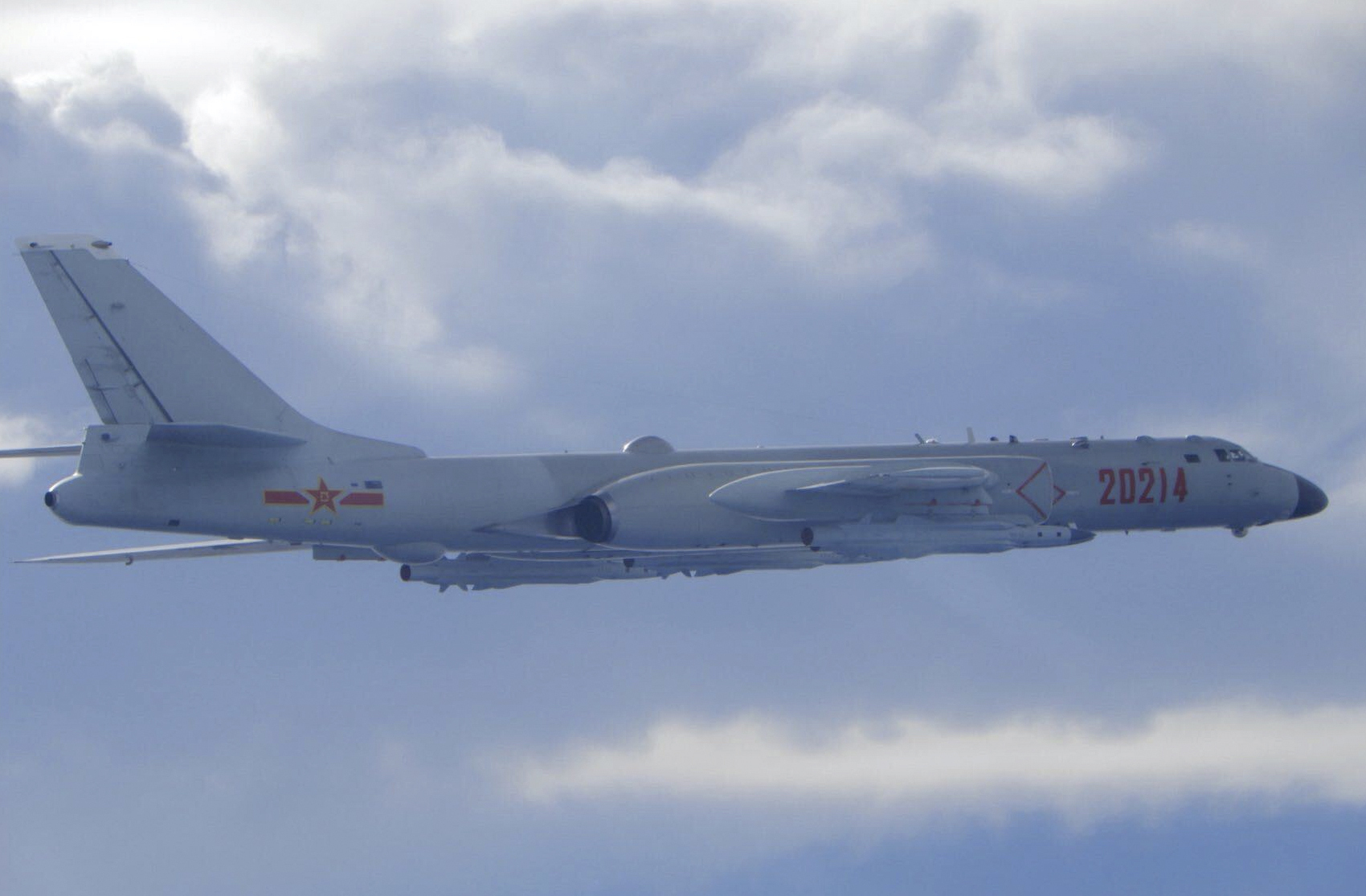South China Sea Watch: Taiwan alarm and Indonesia standoff

In this photo released by the Taiwan Ministry of National Defense, a Chinese People’s Liberation Army H-6 bomber is seen flying near the Taiwan air defense identification zone, ADIZ, near Taiwan on Friday, Sept. 18, 2020. (Taiwan Ministry of National Defense via AP)
BEIJING — A look at recent developments in the South China Sea, where China is pitted against smaller neighbors in multiple territorial disputes over islands, coral reefs and lagoons. The waters are a major shipping route for global commerce and are rich in fish and possible oil and gas reserves.
China send warplanes over Taiwan
China flooded the Taiwan Strait at the northern end of the South China Sea with warplanes over two days last week in an apparent attempt to intimidate the self-governing island democracy it claims as its own territory.
The drills were timed to coincide with the visit to Taiwan by a high-ranking U.S. envoy for talks and to attend a memorial service for former Taiwanese President Lee Teng-hui, who led the island’s transition to full democracy in the face of Chinese threats.
China’s defense ministry said the planes, including 32 fighters of various types, four bombers and one anti-submarine warfare aircraft, crossed into Taiwan’s air defense identification zone on Friday and Saturday. Taiwan responded by activating its ground-based air defense systems and scrambling fighters, who ordered the Chinese planes to leave, saying they would “bear all the consequences” if they did not.
The Taiwan Strait is a busy transit route to and from the South China Sea which is roughly divided between China to the west and Taiwan to the east.
Article continues after this advertisementChina coast guard leaves Indonesia waters
An Indonesian patrol ship confronted a Chinese coast guard vessel that spent almost three days in waters where Indonesia claims economic rights and are near the southernmost part of China’s disputed South China Sea claims.
Article continues after this advertisement“We asked them to move out as it was Indonesia’s EEZ. But they insisted that it is China’s nine-dash- line territory. Our officers at the vessel argued with them until they moved out,” said Aan Kurnia, chief of the Indonesian Maritime Security Agency.
“The Chinese coast guard vessel finally left the North Natuna Sea on Monday at 11:20 a.m.,” he said.
China’s “nine-dash line” delineates its claim to virtually the entire South China Sea. A 2016 international arbitration ruling involving the Philippines invalidated most of China’s sweeping claims in the sea, but China has ignored the ruling.
Us official: China insincere toward Southeast Asia
A U.S. official accused China last week of bullying and insincerity in its dealings with Southeast Asian nations.
U.S. Assistant Secretary of State David Stilwell said Tuesday that Chinese insincerity is best illustrated in its aggressive behavior in the South China Sea, where it has turned disputed reefs into weaponized artificial island outposts despite a commitment not to militarize the region.
In later testimony before the Senate, Stilwell said it was now clear to the U.S. and others that China “seeks to disrupt and reshape the international environment around the narrow self-centered interests and authoritarian values of a single beneficiary, the Chinese Communist Party.”
Chinese Foreign Minister Wang Yi lashed back at the U.S. in last week’s ASEAN meetings, saying Washington was the “biggest driver of militarization” and the “most dangerous factor damaging peace” in the region.